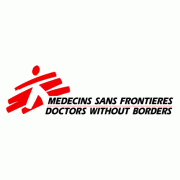 By Nokwanda Dlangamandla
By Nokwanda Dlangamandla
07:09:2022
Zimbabwe and South Africa share a 225 km common border with only one official border crossing at Beitbridge. An estimated 15,000 migrants and refugees from Zimbabwe and other countries cross daily through the official border post or at illegal crossing points.
Migrants’ access to healthcare, particularly in the two towns along this border — Beitbridge and Musina — has come into sharp focus after the health minister of Limpopo province made disparaging remarks to a Zimbabwean woman seeking help at a South African hospital. Doctors Without Borders has provided healthcare to displaced populations at Beitbridge for 22 years. The Conversation Africa spoke to Doctors Without Borders’ regional migration advisor Vinayak Bhardwaj about their research into migrants’ healthcare needs in the area.
Radio Islam International spoke to Doctors without Borders’ regional migration advisor Vinayak Bhardwaj, who recently had an interview with The Conversation Africa, to discuss their research into migrants’ healthcare needs in the area.
According to Vinayak Bhardwaj, the 2019 survey produced reliable data regarding what people saw pre-COVID; after COVID-19, the picture of migration scrambled quite considerably, and the borders were closed for several months in the Zimbabwe side, they were closed for over a year.
“So, what the data give us is a sense of how the peak of movement affects the healthcare demands. And what we see is that while there is a critical need for chronic and infectious disease care, it is also important for migrant communities on the move to need mental health care as well because a lot of them are fleeing conflict, sexual violence, and all,” he said.
He stated that people who are often on the other side of the border tend to be the ones who are healthiest and most fit to make the difficult travel that migration sometimes involves.
Therefore, the research does not back up the theory that many who come across the border for healthcare requirements in South Africa are coming because they are desperate and that facilities back home are inadequate.
“And as you know, some of them, especially those who come from further north than Zimbabwe, those who come from, for example, East Africa, the Horn of Africa, etc., that sort of region, a lot of them to make the long trek down to South Africa would have to be quite fit. So their health demand is not as high, but what we do see is that for the Central African migrants in particular, if they do need healthcare, the challenge they face is that they don’t speak English, and it’s very difficult to accommodate them in the health facilities in the Musina side because healthcare is provided in English, and they speak French,” said Vinayak.
Vinayak said that the most recent data from July showed that most movements are from Zimbabwe to South Africa.
He stated that doctors without borders provide preventative care and vaccines, and for women, they provide contraception access to reproductive health services.
They link those returning to Zimbabwe, especially deportees who come out of detention, to care. They connect those on chronic medications, such as HIV medications, to appropriate so that they remain on treatment as long as possible.
He added that in South Africa, in Pretoria, the MSF provides outpatient department services in migrant communities that also include mental health services.
[LISTEN] to the podcast here







0 Comments